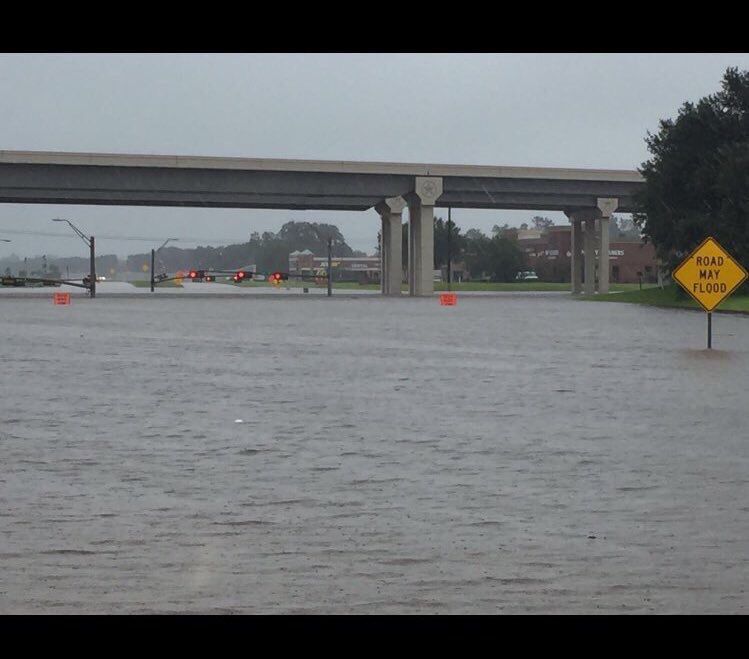Hurricane Harvey volunteer mistakes cause more harm than good
Photo Courtesy Kidd Blaskowsky
IMG_3084.jpg
August 29, 2017
With an event such as Hurricane Harvey, people around the country feel drawn to help out.
In many cases, though, Johanna Amaya Leal, an assistant professor in supply chain management and information systems, said these people can end up causing problems rather than fixing them.
Houston is the fourth largest city in the country with a population over two million. Once the rain stops, the affected citizens require supplies and with a population this large, the amount of supplies needed matches its size.
“It’s gonna cost a lot, so that’s why the relief groups, they need supplies, but they don’t need supplies from individuals, they need monetary donations, so they can buy what is actually needed,” Leal said.
The needs of those affected are constantly changing, Leal said. She explained that as people outside of the situation hear that those affected need socks, for example, and send in the socks, the needs of the affected area have already changed.
She said, donation-wise, the best that people can do is send in monetary donations.
In many cases people send what they think the affected people need, rather than what is actually needed, Leal said. She also said that someone needs to sit and organize the donations which requires time and effort that can be spent elsewhere.
“Many of those donations what they do is just to create more traffic on the roads and they impede the flow of the critical goods getting to the area,” Leal said. “So instead of doing any good, basically they are harming the flow of what is actually needed.”
Leal also cautioned, for those heading down to Houston to help out to volunteer with a volunteer organization. Those who self-deploy tend to not cover areas that need aid and put themselves in danger.
In a press release sent out by the Federal Emergency Management Agency, or FEMA, people are warned not to enter affected areas without a specific assignment, proper gear and valid identification.
FEMA also stressed the importance of finding verified organizations to donate money to.
FEMA recommends those looking to volunteer or donate go to the National Voluntary Organizations Active in Disaster website or the The Texas Voluntary Organizations Active in Disaster (Texas VOAD) website for verified organizations.
“Volunteer generosity helps impacted communities heal from the tragic consequences of disasters, but recovery lasts much longer than today,” the press release said. “There will be volunteer needs for many months, and years, after the disaster, so sign up now.”
Leal included disaster situations while doing her dissertation as a doctoral candidate. One focus was how volunteers tend to cover only pockets of an affected area rather than the entire area, an issue that is often caused by self-deployed volunteers.
“I worked on basically how to improve the situation of lost supplies after disasters, mainly the logistics part,” Leal said. “And it goes from collecting information…all the way to visiting the disaster area.”
Martino Harmon, the senior vice president of Student Affairs, sent an email out to students who may be affected by Hurricane Harvey.
“Please do not hesitate to contact us and request assistance. There are a number of ways to reach our services,” the email stated.
For those from the Houston area or parts of Louisiana affected, numbers for assistance include the Dean of Students Office, 515-294-1020; a number for student assistance, 515-294-1020 and Student Counseling Services, 515-294-5056.







